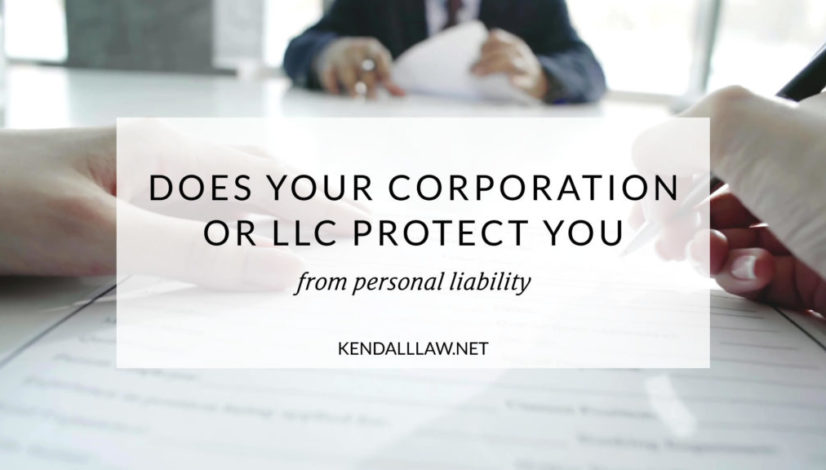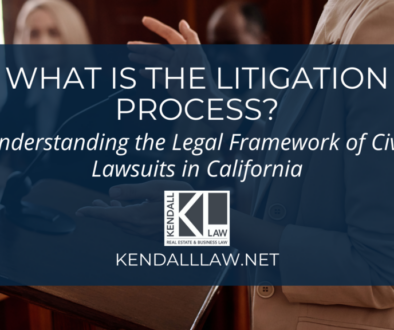Does Your Corporation or LLC Protect You From Personal Liability?
Some business owners create a corporation or LLC because they are told that it will shield their personal assets. Well that is only partially true. In the legal world someone can seek to “pierce the corporate veil” or “alter ego” by arguing that the entity is not separate from the person and is a sham and therefore the owner should be liable for the debts/judgment of the entity.
This month was my turn for presenting a key note to my BNI group and I always try to find something that would be valuable information for the members of the group and visitors that come. In the world of do it yourself and Legal Zoom, I figure there may be some business owners that do not understand that it is more than just creating the entity to afford the entity protections.
Here are the 5 tips I covered to help business owners understand how to ensure that personal assets are protected from the debts and actions of a corporation.
- Ensure that the business maintains a separate and distinct identity from the owners. How do you do that? First, you form the legal entity with all the required paperwork, bylaws for a corporation, operating agreement for an LLC. For a corporation, you issue shares and keep an updated ledger of the shares, and conduct shareholder and director meetings, unless your bylaws specifically state that meetings are not required (sometimes with single shareholders the bylaws will provide that a meeting is not necessary). I highly recommend that you use an attorney to create your entity.
- Document business actions. When you conduct the shareholder and director meetings create minutes for those meetings as soon possible after the meeting. Date and sign the meeting minutes. Have written contracts between vendors and the entity.
- Ensure adequate capitalization. This is one area that I see a lot of people fall short when facing litigation. Adequate capitalization is the total amount of money a company needs to cover its foreseeable operations and obligations. This can be done by paying to buy your shares in the corporation or by obtaining a loan to fund the business start-up. This will vary depending on the type of business and the cost to start and run the business.
- DO NOT commingle personal assets with business assets. This is easiest done by maintaining separate accounts and bookkeeping for the business. You can support your small business by using other local small businesses like Accounting Breeze in El Segundo, California, that can manage your business books for you.
- Use the entity name. Make sure to identify your company name in all your marketing materials, contracts, signature blocks, etc. Do not use your personal name in transactions for the business.
If you do all of these things and someone sues the company and seeks to “pierce the corporate veil” or makes an “alter ego” argument, your attorney will have a very easy time defending the claims to protect your personal assets.
Have a legal question for me? Drop me a line. We’re happy to help.
Author: Eileen Kendall





